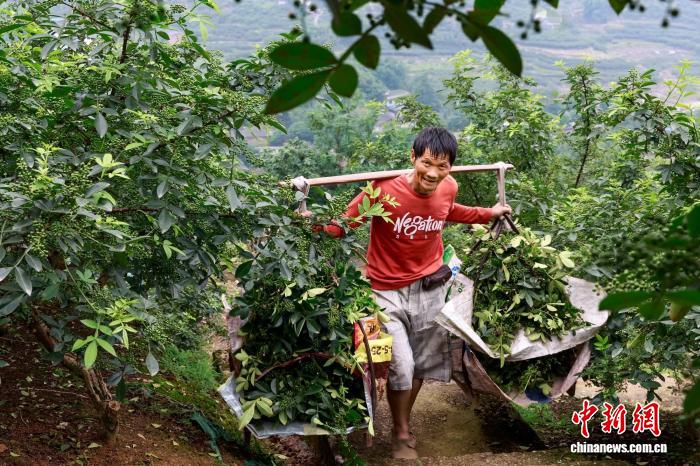In recent years, Chongqing’s geographical indication products such as “Fuling Zhacai” and “Fengjie Navel Oranges” have been selling well in the market, helping to increase farmers’ incomes. This success is attributed to careful local cultivation.
At a press conference held in Chongqing, it was announced that the city currently possesses 70 geographical indication products, with 301 registered as collective or certification trademarks. These are distributed across 34 districts and counties, essentially covering Chongqing’s well-known agricultural products.
A geographical indication is a type of intellectual property originating from a specific region, closely linked to the area’s natural and human factors. It serves as an important tool for local governments to promote rural revitalization and develop regional specialty economies. In daily life, many geographical indication products are often referred to as “local specialties.”
During the current Five-Year Plan period, Chongqing has been promoting the development of the geographical indication industry primarily through three aspects.
First, strengthening protection and supervision to create a favorable market environment. Local authorities have approved 565 business entities to use the geographical indication official mark; daily supervision focuses on cracking down on infringement, counterfeiting, unauthorized use, and improper use of the official mark. Additionally, Chongqing and Sichuan have jointly carried out special law enforcement actions for geographical indication protection, established a key protection list, and strictly cracked down on violations.
Second, creating highlands for geographical indication protection to demonstrate leading roles. Chongqing is building high-standard national protection demonstration zones for Jiangjin Peppercorns and Youyang Tea Oil, which are currently undergoing national inspection. Chengkou La Rou has been selected for the National Geographical Indication Protection Project, providing a model for the city’s protection efforts.
It is worth noting that Jiangjin Peppercorns have driven the industry’s extension into medicine, chemicals, and cultural tourism. A protection matrix has been formed, involving 18 leading enterprises approved to use the official mark, 148 trademarks, and 144 patents, helping Jiangjin Peppercorns accelerate their expansion into international markets.
Third, strengthening brand building to develop the geographical indication specialty industry. During the current plan period, Chongqing has allocated 7.3 million yuan in special funds to support 29 products in advancing a “geographical indication plus” development model, enhancing brand influence and product added value. In 2024, the comprehensive output value of the city’s geographical indication industry reached 130 billion yuan.
The next steps include accelerating the formulation of relevant regulations, exploring a hierarchical management system, supporting the construction of display and trading platforms, promoting exports, and comprehensively enhancing the quality and market competitiveness of Chongqing’s geographical indication products to better contribute to high-quality regional economic development.





